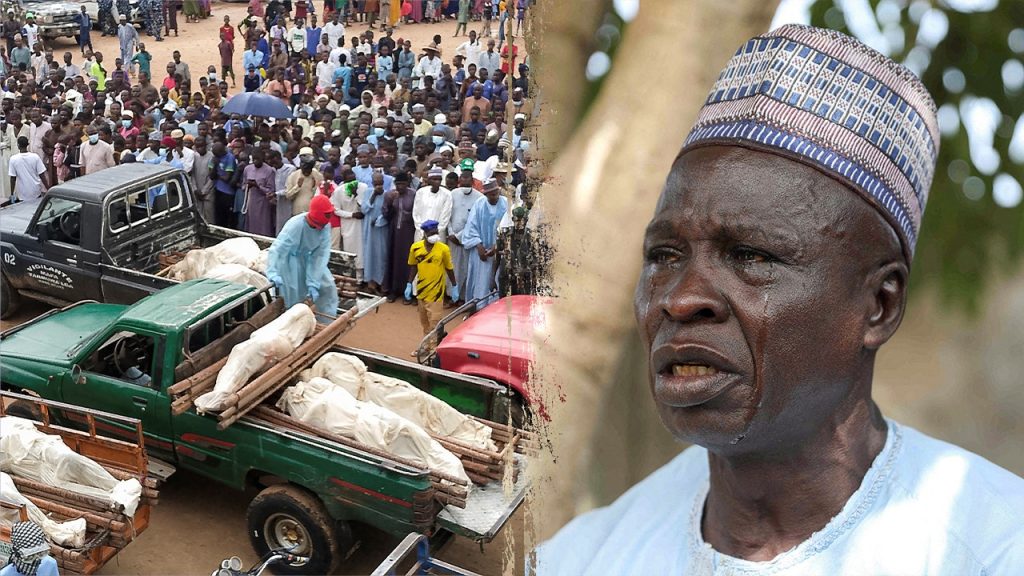Listen to the article
In a significant escalation of U.S. concern over religious violence in Nigeria, Republican Rep. Riley Moore has indicated that the United States is considering a range of responses—potentially including military action—to address what he characterizes as the “genocide” of Christians in the West African nation.
Moore, a West Virginia representative serving on the House Appropriations Committee, has been designated by former President Trump, along with Chairman Tom Cole (R-Okla.), to lead an investigation into killings of Christians by Islamist militants in Nigeria. The investigation comes after Trump this week officially designated Nigeria as a “country of particular concern” and directed the Pentagon to prepare for possible military intervention.
“All options are on the table here for this, even kinetic military action,” Moore told Fox News Digital. “That could mean targeted, strategic counterterrorism strikes to get rid of some of the top leadership if that’s what it takes to stop the killing.”
The congressman emphasized that the designation unlocks “15 different levers” the administration can use, including halting arms sales, freezing aid, and imposing sanctions on officials or institutions accused of enabling or ignoring religious violence.
Moore described the ongoing situation as a “genocide,” claiming Christians in Nigeria are being killed at a rate of five to one compared to non-Christians. He accused the Nigerian government of “looking the other way” despite receiving billions in U.S. security assistance since 2009.
“We’ve been providing security assistance to this country since at least 2009—billions of dollars worth of arm sales, training and equipment that they’ve received. And it’s a question of prioritization in what’s important to them. And clearly this has not been one of the most important things,” Moore stated.
The Nigerian government has strongly denied these characterizations. In a statement posted on X (formerly Twitter), the office of the presidency said, “Portraying Nigeria’s security challenges as a targeted campaign against a single religious group is a gross misrepresentation of reality. Terrorists attack all who reject their murderous ideology—Muslims, Christians, and those of no faith alike.”
Nigeria, with a population exceeding 230 million, has long experienced tensions between its diverse religious communities. The country’s religious geography shows a predominance of Muslims in the northern regions and Christians concentrated in the south. Christianity took root in the 19th century when freed slaves educated in Sierra Leone returned as teachers and missionaries.
For over a decade, extremist groups such as Boko Haram have terrorized communities in northern Nigeria. The International Society for Civil Liberties and Rule of Law reports that at least 52,000 Christians have been killed, approximately 18,500 abducted, and 20,000 churches and Christian schools attacked between 2009 and 2023. Boko Haram gained international notoriety in 2014 when the group kidnapped 276 schoolgirls from their dormitory.
Moore cited a recent incident as evidence of the government’s negligence: “We had a pastor warn the government about an impending attack—they called it fake news. Within 24 hours, that pastor and 20 of his congregants were murdered.”
The congressman indicated that he and Chairman Cole plan to meet with Nigerian officials in Washington this month and may send congressional delegations to Nigeria. He emphasized that cooperation remains possible if Nigeria demonstrates willingness to confront extremist groups.
“It’s not all sticks here—there are some carrots in this,” Moore added. “If they’re willing to work with us, this could actually lead to a stronger relationship between our countries.”
Despite the strong rhetoric, direct U.S. military intervention faces significant logistical challenges. A defense official noted that such action would be difficult with current U.S. assets in the region. The United States maintains no permanent military base in Nigeria, though small teams of advisors and special operations trainers work periodically with Nigerian forces under AFRICOM programs.
The situation is further complicated by Nigeria’s strategic importance. The country’s growing reserves of lithium, cobalt, nickel, and other critical minerals have drawn U.S. interest as Washington seeks to counter China’s dominance in Africa’s critical-minerals market. However, persistent insecurity threatens Western access and development in these mining regions.
The United States has approved approximately $600 million in security aid to Nigeria over the past decade, primarily focused on counterterrorism operations in the country’s northeast.
Fact Checker
Verify the accuracy of this article using The Disinformation Commission analysis and real-time sources.




7 Comments
While the concerns about the persecution of Christians in Nigeria are valid, I’m hesitant to support unilateral military intervention without a clear understanding of the regional dynamics and potential consequences. Diplomacy and targeted sanctions may be more prudent first steps.
I agree, the situation requires a measured and well-informed response. Rushing into military action without exhausting other options could lead to further destabilization and harm to innocent civilians.
Addressing religious violence and potential genocide is undoubtedly important, but the use of military force should be an absolute last resort. I hope policymakers thoroughly explore all diplomatic and non-violent options before considering any kinetic action.
This is a concerning situation that warrants careful consideration. While protecting human rights is critical, the use of military force requires thorough analysis of the potential consequences and risks. I hope any response is well-informed and minimizes further harm to civilians.
This is a complex geopolitical issue with significant humanitarian implications. I appreciate the congressman’s concerns, but caution against hasty military action without a comprehensive strategy and international cooperation. Finding a peaceful resolution should be the top priority.
This is a complex issue with valid concerns on both sides. I’m curious to learn more about the specific dynamics in Nigeria and whether diplomatic or economic measures could be more effective than military intervention. It’s important to find a solution that prioritizes peace and human rights.
I agree, the situation requires a nuanced approach that balances the need for action with the risks of escalation. Open dialogue and investigation of the facts will be crucial in determining the most appropriate response.